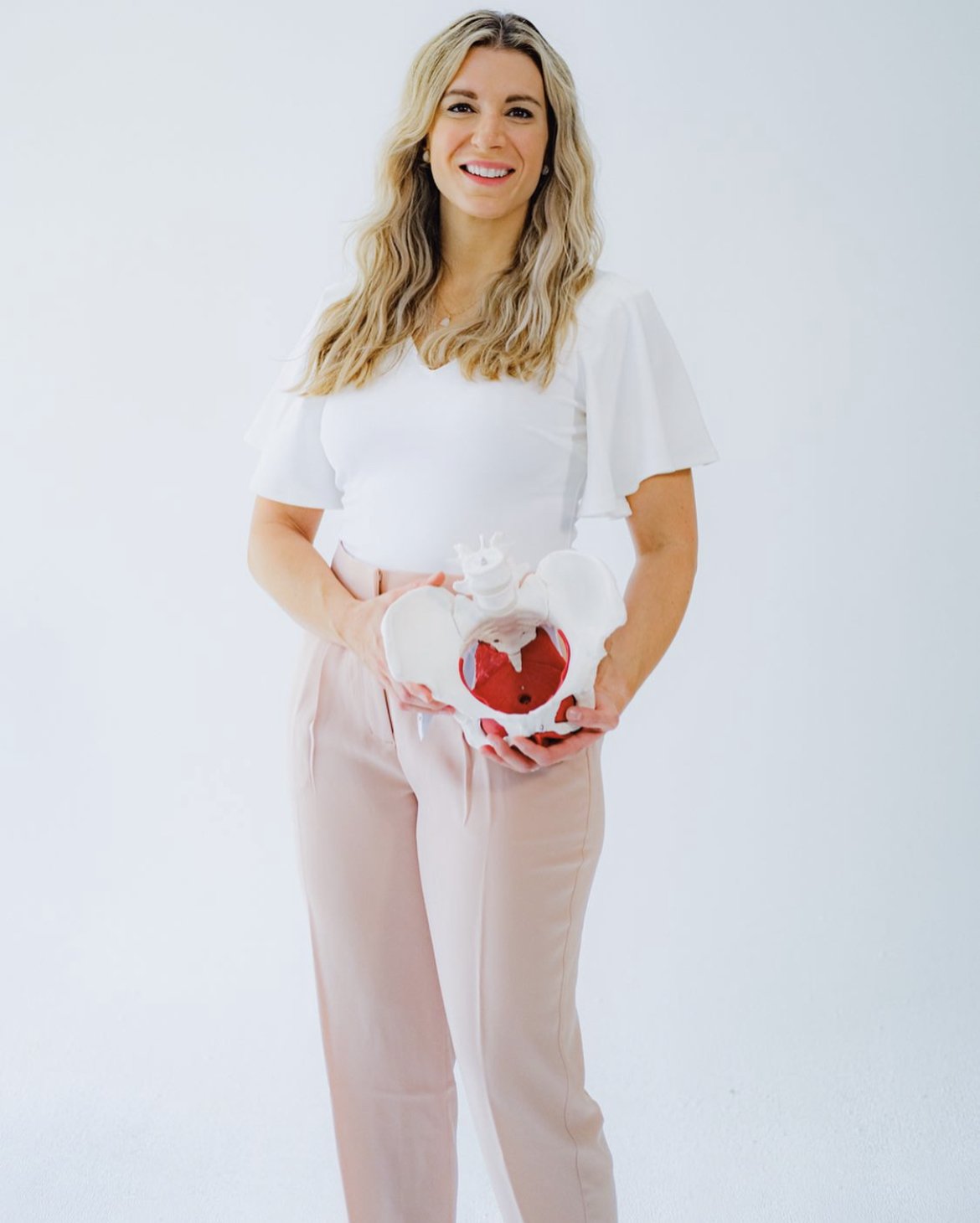Laughing & Leaking | Understanding Urinary Incontinence
So, you’re on this journey of motherhood and are now wondering if everything down there is behaving as it should. Doesn’t every mom have a hard time holding it in?
There are many reasons why women may let out a little bit of pee. A very common occurrence during or after pregnancy is something called stress urinary incontinence, basically, anytime some pressure is put on your bladder (ie: a cough, laughing, or lifting something heavy). This is due to hormonal changes that make pelvic tissue stretchier (and other tissues that we don’t want to be stretchy, stretchier) coupled with potential tissue damage that occurs during delivery. This happens to about 40% of women. Other reasons may be due to pelvic muscle dysfunction, weakening, and occasionally from the bladder not being completely empty. Then there’s urge urinary incontinence, which occurs when women get the urge to go to the bathroom and can’t hold it all in on the way there. None of these problems should make women fearful of having children.
In a recent episode of The Motherhood Kit podcast Yamel sat with Dr. Propst, who is a Urogynecologist and Assistant Professor of OB/GYN at USF Health who cares for women with pelvic floor disorders. Together they discussed why peeing when you laugh is not normal and actionable steps for you to address that now.
Preventing Urinary Incontinence
Seeing a pelvic floor therapist (aka a physical therapist who has added specialty in the area of pelvic floor dysfunction) or urogynecologist is always a great option as they can lead you through specialized activities and monitor your progress. This is the preferred option for those who are dealing with longstanding pelvic pain. But if a more economical approach is needed, Dr. Propst recommends doing pelvic floor muscle exercises on your own. Kegel squeezes are completely safe to do during pregnancy and in your own home. How do you know you’re doing a Kegel squeeze correctly? Check when you’re peeing. Do the squeeze midstream, if it starts to slow, then you know you’ve got the exercise down. Practice Kegels to get the muscles stronger, and fully implement the exercise when doing the activities that cause the leakage. Kegel squeezes have often been recommended as a pre-natal exercise which is great for muscle preparation, but balance is key. Having those muscles too tense and unable to relax can cause spasms. Think of it like going to the gym without stretching. This is where belly breathing practices come in handy.
Nicole at Bloom Pelvic Therapy
Therapy vs. Surgery
Dr. Propst doesn’t promote one over the other. Pelvic floor therapy can be for everyone and may be a great first choice of intervention for women who have urinary incontinence issues that are planning on having more children. If leakage doesn’t resolve itself in around six months, it may be time to start involving a specialist. While the topic of urinary dysfunction may be embarrassing for some, it’s still very common, and not a normal issue to deal with on your own.
What NOT To Do
For some women, the mindset of getting back in the gym and working a little harder may be an appealing solution. But this may do more harm than good. Some traditional exercises can make leakage worse and prolong healing, especially when it relies on properly activated pelvic floor muscles that are not functioning as highly after delivery. While snap-back culture is everywhere, this is your reminder that it took 40 weeks for your body to prepare for childbirth, and it will need just as much time to readjust, do not rush.
After seeking a physical therapist or urogynecologist and having an extensive examination, the healing plan will look different for every woman. This can entail relearning how to properly activate those muscles to walk normally, have better posture, or even run long distances again. The most important takeaway is knowing that while the subject may seem taboo, it is nothing to be ashamed or embarrassed by, nor should it stop women from living their full lives.
You may be thinking, “Where can I find a doula near me?” We provide Tampa doula support & Miami doula support, childbirth education, placenta encapsulation, in-home postpartum doula care, specialized lactation support by our CLC’s and IBCLC’s and birth photography for:
Tampa, St Petersburg
Land O’ Lakes
Lakeland
Plant City
Downtown Tampa
… and more!
Virtual services also available, let’s plan for your amazing birth and postpartum journey.
All with,





